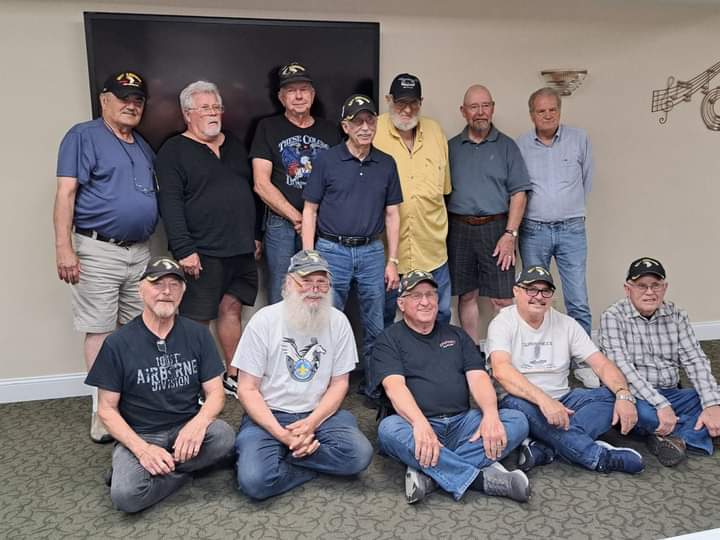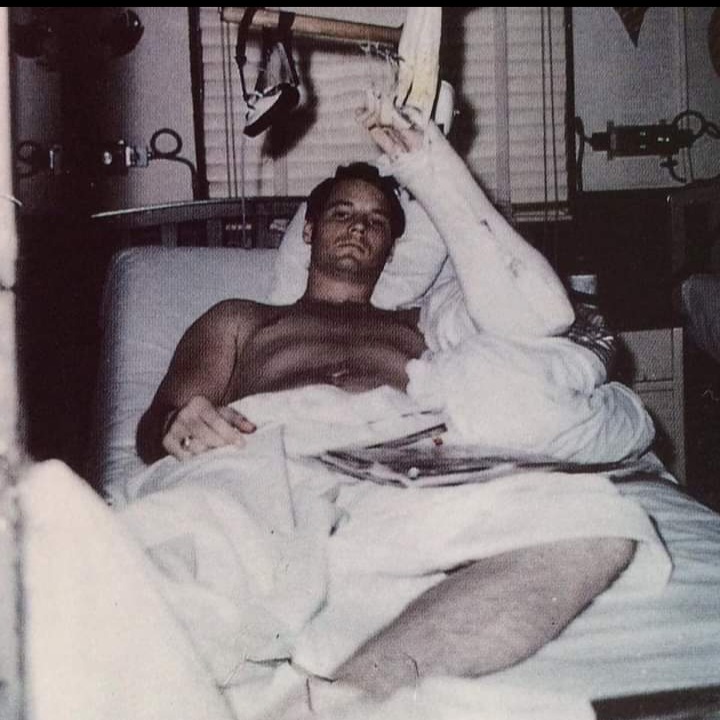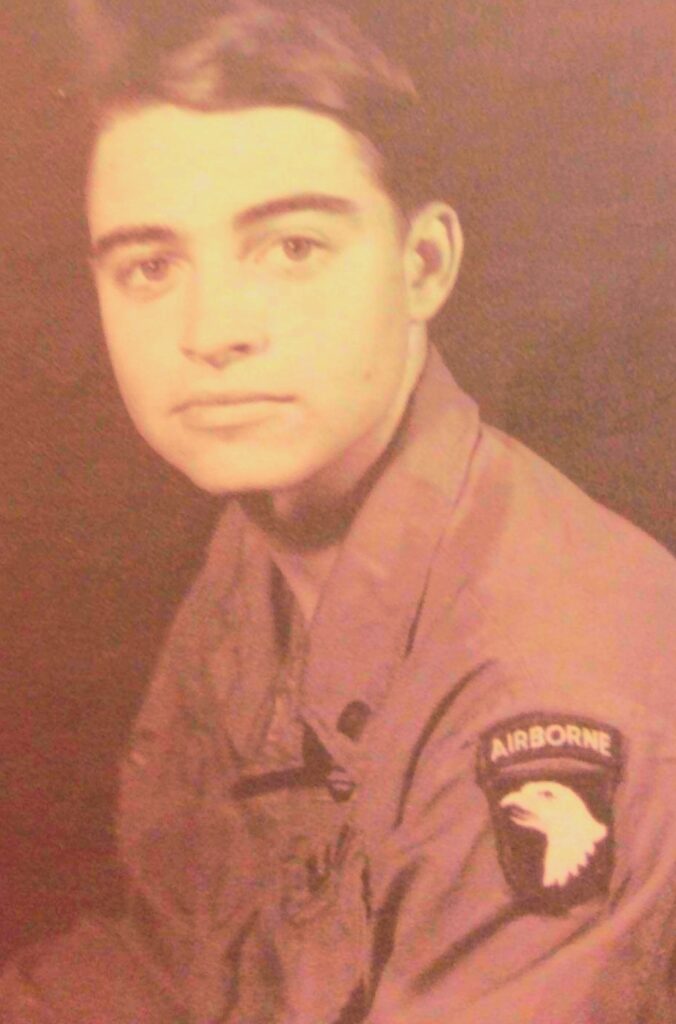
Hindsight is bewildering. The idea that you are headed in one direction only to be redirected into a life you could never have imagined is surreal. And now you have a life you wouldn’t trade now for the world.
The United States came out with the draft lottery system in December of 1969. Young men were assigned a random number corresponding to their birthdays. Those lucky enough to be enrolled in college received a 2-S deferment that lasted until graduation, or the registrant reached 24.
Larry Pratt had his 2-S deferment and was happily attending college when his father was laid off from work. Larry decided to take a semester off to return home and help his family. It was during that semester off that Larry received his draft notice.
Everyone knew you would be drafted if your assigned number was below 100. Larry’s number was 56.
Larry was drafted.
“After I was drafted, I went to the recruiter to find out where I would go,” says Larry, “I told the recruiter I didn’t want to be in service for more than two years. When he saw my draft notes, he said, ‘Kid, you’re already drafted!’”
He said he would try to change my US. designation (designation for draft) to RA, which was Regular Army. This would set me as Enlisted.
“I can change you from US to RA, but I can’t guarantee anything,” the recruiter said.
He asked Larry what he wanted to do. “The easiest job I can get and get out,” Larry replied.
He put him in for military police.
Soon after, Larry headed to Ft. Ord in California for basic training.
When training was completed, Larry approached his Drill Seargent and asked, “Can you tell me what’s going on? I’ve only got two days off, and I’m reporting to AIT. What is AIT?”
The Drill Seargent explained that AIT was Advanced Military Training and reminded Larry that as a two year, there were no guarantees.
So, Larry wouldn’t be Military Police; he would be Infantry—because that is where the military needed him.
Larry went to Travis Air Force Base to await deployment orders once AIT was completed.
“There was a bulletin board with lists telling you when you were deploying. Every morning, we would all go down and see if we were on the list. We knew we were going; we didn’t know when.”
The wait was excruciating, but at least not very long. For Larry, it was just two days.
Boots on the ground in Vietnam meant more training. This time P Training—training in the trenches—but still training.
While there, Larry meets Doug Hunter, a Sergeant at the time, on his third tour in Vietnam. Doug was originally from Maryland, as was Larry, so they quickly formed a friendship.
When orders were issued, both men were to join up with the 101st Airborne Division. So, they jumped in a “Deuce and a Half” for the journey. Doug had been here before. Many of the troops knew him, but they knew him as “Lumpy.”
“Larry, show me your orders again,” Doug says. So, Larry showed him.
“Ooohhhh, you’re going to Recon,” Doug says, “You don’t want to go to Recon.”
“I didn’t want to go into the Army,” Larry says. “I didn’t want to go into Infantry, and I didn’t want to go to Vietnam, so it makes sense I would be going to Recon.”
Recon was a six-man group that would go and find the enemy so platoon or company strength units could eliminate them. It was higher on the danger scale than alternate duties.

Before Larry could deploy with his new Recon Team, Lumpy approached him with his company commander from Delta Company and his lieutenant from the second platoon.
“Hey, I’ll tell you what, if you come and walk point for the second platoon, I’ll take you out of Recon,” the company commander offers.
“Do it! That it is the right decision,” Doug urges Larry.
With the trust built through their friendship, Larry agrees and deploys with the second platoon of Delta Company.
Just four days later, Larry would be on his first mission with the second platoon, helicopters and all.
November 2, 1970. There were probably 20 guys in Larry’s platoon consisting of five- or six-man squads. Larry walked point while Lumpy walked behind him. Sometimes, they would trade off positions.
On this day, they had stopped to eat lunch. Larry had gone to higher ground to keep a lookout while Lumpy sat across from the medic on lower ground. Vietcong had snuck into the group and opened up with an AK47 and a 30-round clip, hit Lumpy eight times, and hit the medic once.
Larry knew his friend was hit because he was yelling for a tourniquet. Larry crawls down the slope amidst the firefight to his friend and starts to bandage him up while checking his wounds.
Lumpy was hit really badly.
Larry finds the medic gasping for air from a hit in the chest that punctured his lung and hit a major artery. The medic died on the spot. But Lumpy survived.
Lumpy went through many surgeries in Japan and later at Walter Reed.
Lumpy had a colostomy bag and an artificial bladder. His shoulder was blown out, and his hands and wrists were also damaged.
Lumpy found his way home to Maryland after a stay at Walter Reed and ultimately called Larry, who, after the war, was living in California.
“He called me up, and I moved him out to California with my family,” says Larry. “We were best friends. He eventually married and moved to Roanoke, Virginia, with his new wife. We talked on the phone daily, and I visited him often.”

Lumpy died in March of 2014.
“When Lumpy died, his wife called me and asked if I could get any of the guys from the platoon to come and be pole bearers,” says Larry, “I told her I would try, but we hadn’t really gotten together or anything. I was able to call a guy who knew a guy who knew a guy. I discovered our company commander was still alive and knew our platoon Seargent lived in New York. Between the three of us, we got all of them there.”
As the men of the second platoon sat in a Virginia hotel lobby, they decided they should get together more often. From that point forward, they met every other year.
“We get together; those of us still alive, we’ve lost some. They are great guys. We are best friends all the way around.”
Someone asked Larry, “If you knew then what you know today, would you have taken that semester off from school?”
“Yeah, I’d do it again,” Larry says, “Knowing what I know now, being alive, and these guys I’ve met that I fought with, there’s no closer thing.
“It’s like the Bible says, ‘No greater love than one being willing to lay down his life for another.’
“It’s a bond that is hard to describe.”